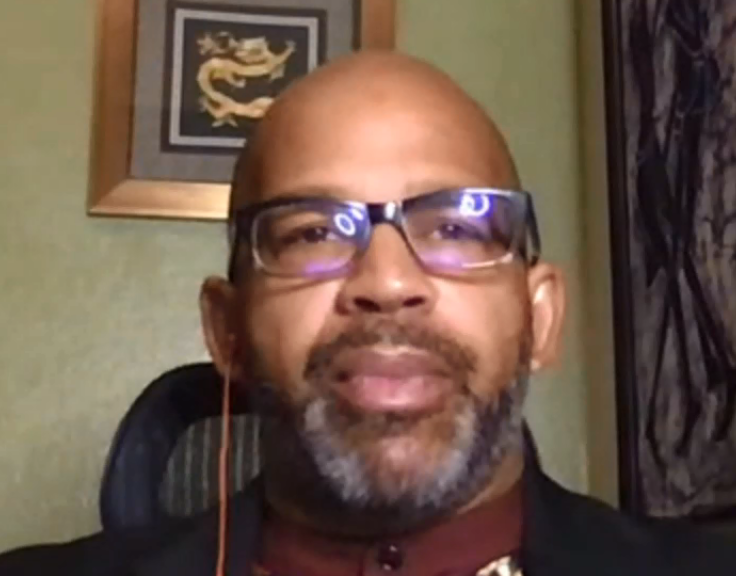
Senior journalists from the UK and US have warned against carrying out only “performative diversity” in newsrooms and said some publications “will never change”.
Martin Reynolds, co-executive director of the Maynard Institute which is dedicated to improving the diversity of news media in the US, said that without measures to promote equity and inclusion “whatever diversity you have is just window dressing”.
Reynolds (pictured) told the Bureau Local’s “Decolonising News: Confronting journalism’s role in systemic racism” webinar on Thursday that journalists of colour will not feel they belong in newsrooms until they can shift away from the “white male gaze” on stories.
He said: “The reality is you can be included but people don’t really want you there… but when you belong some place you can tell by the stories that you’re able to pick, you can tell by the equitable pay that you receive, you can tell by the sourcing that you are able to utilise, you can tell in the language that you can use…
“When you belong you can feel it in your bones, you can feel it when you look around and you see you have the ability to influence change [and] to help make decisions.”
Marverine Duffy (née Cole), head of undergraduate journalism at Birmingham City University and a broadcast journalist, agreed that journalists are forced to think about “every story from a white gaze perspective” but warned that some newsrooms will never move away from this.
“For me being anti-racist in a newsroom is about a commitment not just from the top, not just from the editor, but from the owners, the publishers and also the staff,” she said.
“But also we’ve got to acknowledge that there are publications out there for whom it will never change. They will pay lip service to it [diversity] but they will never, ever change. They will never, ever be anti-racist because it’s not in their interests.
“They’re speaking to a specific audience, we all know who those organisations are, very clearly right-wing, there’s going to be very little change there but for those newsrooms that do want to change and are changing and are taking action brilliant, just keep it coming and do more.”
Reynolds agreed some publications “are never going to change” and questioned “so how can we in our belief and care of these individuals continue to funnel journalists into institutions that continue to be inhospitable places for them in so many ways?”
He added: “Why should we continue to have to squish ourselves and to conform in these legacy institutions that do not want to switch from a white gaze to a kaleidoscope of gazes that are truly reflective of our society?”
Reynolds urged titles to train diverse people at higher levels who could potentially reach C-suite positions because that is where change happens.
Bringing in only young diverse hires means there is soon a perception that “‘we’ve achieved diversity, look at all these people of colour around this room’, and none of them are in any kind of leadership role, they are temporary, they are seen as the ‘diversity hire'”,” Reynolds said.
“So it’s basically performative diversity. Not to say that it’s not helpful, not good, not vital, but it is the least one can do and I would argue that’s not where one should start.”
He also criticised diversity internships for being too often underpaid and without anyone dedicated to overseeing the young person’s development.
Duffy, who has told Press Gazette about her own newsroom experiences relating to racism, said: “I do think it comes down to a will of whoever’s at the top at the end of the day, because if there’s no willingness for those who are managing people’s careers who are allowing them to go up to the next space… then whenever a mid-career journalist decides to leave there’s going to be no change.”
We Are Black Journos founder Hannah Ajala was also on the Bureau Local’s panel, which can be watched back here.
Picture: Bureau Local event screenshot
Email pged@pressgazette.co.uk to point out mistakes, provide story tips or send in a letter for publication on our "Letters Page" blog
